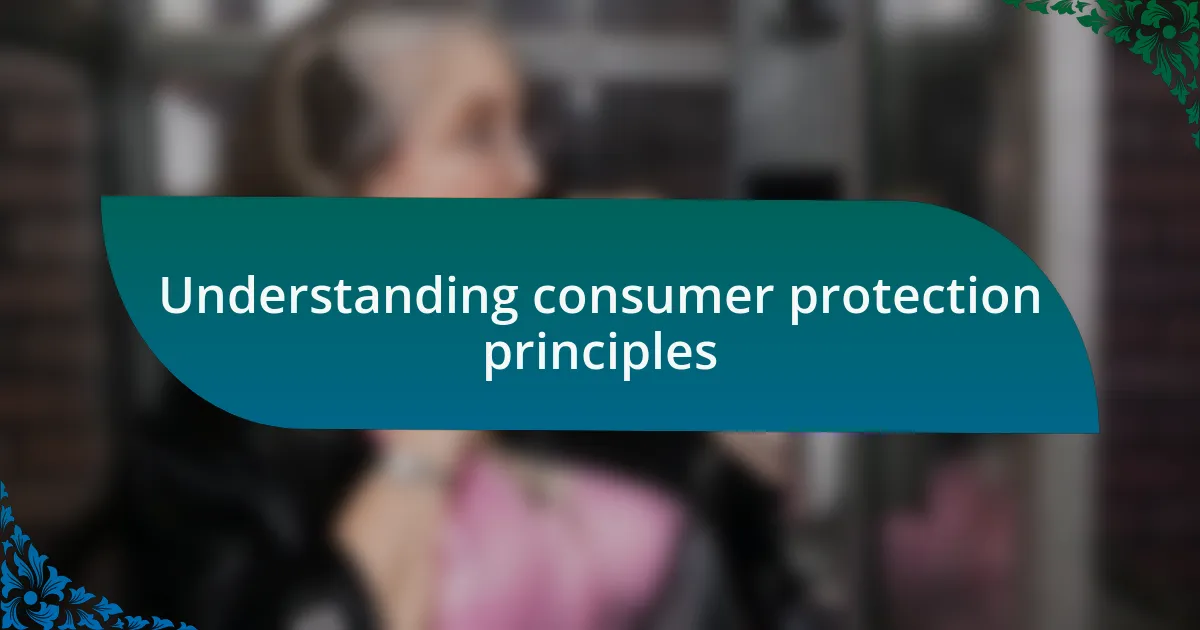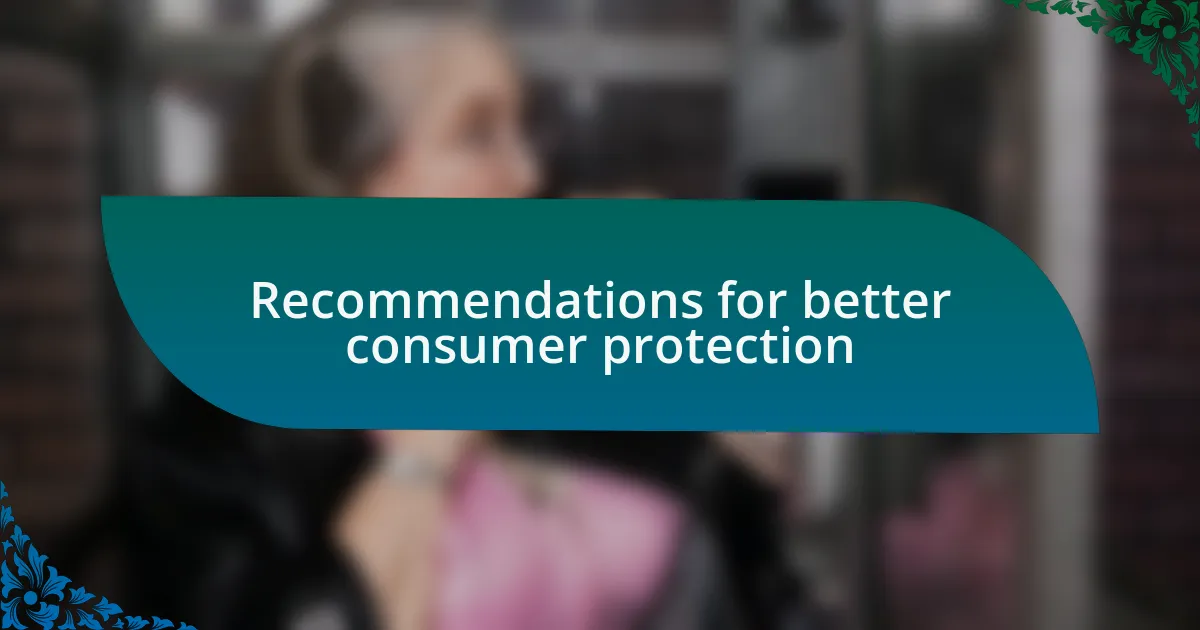Key takeaways:
- Consumer protection in telecom emphasizes equitable access, transparency, and fairness to empower users.
- Simplifying service agreements helps consumers understand contracts without jargon and fine print.
- Enhancing complaint resolution systems is crucial for timely and effective customer support.
- Educating consumers about their rights enables them to advocate for themselves confidently.

Understanding consumer protection principles
Consumer protection principles in telecom revolve around ensuring equitable access, transparency, and fairness. I often think about how these principles directly influence my own interactions with service providers. Have you ever felt overwhelmed by fine print in contracts that seem designed to confuse? This is where transparency becomes crucial; consumers deserve to understand what they are signing up for without hidden surprises.
Furthermore, these principles are not just about protecting consumers; they empower them. I recall a time when I switched providers and discovered that my loyalty didn’t equate to better service—this realization made me appreciate the importance of competition in the market. When companies prioritize fair treatment, it fosters trust and loyalty, which ultimately benefits everyone involved.
Lastly, effective consumer protection involves more than just regulations; it requires an ongoing commitment to adapt to emerging challenges. The rapid evolution of technology means that telecom companies must remain vigilant and responsive. Have you noticed how often policies change? As consumers, we have a stake in ensuring that our voices are heard, driving companies to prioritize our needs and expectations.

Recommendations for better consumer protection
One practical recommendation is for telecom providers to simplify their service agreements. I remember my frustration when I encountered a lengthy contract filled with jargon that felt more like a legal maze than an agreement. Clear, concise language can make a world of difference, allowing consumers to make informed choices without the need for a legal dictionary by their side.
Another vital step is to enhance complaint resolution systems. I’ve encountered situations where reaching customer support felt like a marathon rather than a straightforward process. It’s essential for companies to not only make these avenues accessible but to also ensure timely responses and effective resolutions. How often do we, as consumers, simply give up after being put on hold for far too long?
Lastly, educating consumers about their rights can empower them significantly. I still recall a moment when I learned about my right to a fair service quality, which encouraged me to advocate for myself with my provider. By fostering awareness through workshops, online resources, or even brief informative notifications, companies can equip consumers with the knowledge they need to demand accountability and stand up for their rights confidently.